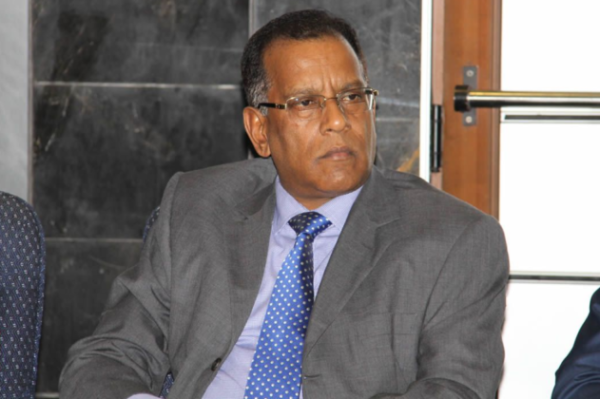The Southern African Development Community (SADC) must develop a comprehensive program to strengthen small and medium-sized enterprises so that they can play a key role in economic growth, says Soomilduth Bholah, Mauritian Minister of Business, Enterprise and cooperatives.
In a keynote speech at the opening of a meeting of the SADC-ECA Special Group of Experts (AEGM) on “The Role of Small and Medium-Sized Enterprises in the Industrialization Process in Southern Africa”, Mr. Bholah states that the central objective of such a program is to strengthen the competitiveness of SMEs, improve the business and regulatory environment, strengthen institutional support systems, promote technology transfer, industrial innovation and improve productivity.
“This must be done if we recognize that SMEs are key players in achieving economic growth in the Southern Africa region,” he says.
“As we move in a rapidly changing world, the countries of Southern Africa must exploit the ambitions and we must focus on the different paths to achieve our goals. Mauritius is making every effort to conclude regional agreements and multilateral agreements to expand its international trade, through which our SMEs can also participate in world trade. ”
Bholah says that SMEs are indeed the engines most likely to generate savings and the starting point of industrialization; to be responsible for employment and income-generating opportunities while being a major driver of poverty reduction and development.
SMEs, he adds, are also a critical force in the implementation of the United Nations Sustainable Development Goals.
The Minister informs that with a contribution of about 40% to the GDP of Mauritius and representing 54.6% of total employment, SMEs should become a major pillar of the Mauritian economy.
To implement the appropriate SME support policies, Mauritius has adopted a ten-year master plan that must change the game in the country’s economic development process.
The plan is based on five main objectives: improving the competitiveness of SMEs, favoring SMEs with high growth potential, improving skills and job opportunities, improving added value and increasing market share.
partnerships
For his part, the Director of the Subregional Office for Southern Africa of the Economic Commission for Africa, Mr. Said Ademujobi, said that ECA will continue to work with SADC to promote structural transformation in Africa. industrialization and the development of the private sector.
He said that without SMEs, there can be no development or structural transformation in the region.
“We need to focus on SMEs because they are the main drivers of inclusive and balanced growth and have great potential to improve the process of industrialization in the region if their entrepreneurial mode is encouraged” says Ademujobi.
He added that cooperation and partnerships are essential to help SMEs solve some of the problems that affect the socio-economic development of the region and congratulates Mauritius for prioritizing its SMEs.
SADC Director of Policy, Planning and Resource Mobilization, Mubita Luwabelwa, says that in southern Africa, SMMEs account for more than 90 percent of enterprises, creating more than 60 percent of employment opportunities .
“The role of SMEs as drivers of socio-economic growth in the region can not be overstated,” says Luwabelwa, adding that SMEs are a key element of SADC’s industrialization strategy.
The main outcome of the AEGM will be a comprehensive report outlining the issues and challenges and recommendations for strengthening the “role of small and medium-sized enterprises in the process of industrialization in Southern Africa”, a strategic framework of best practices for the development of SMEs in the region.



